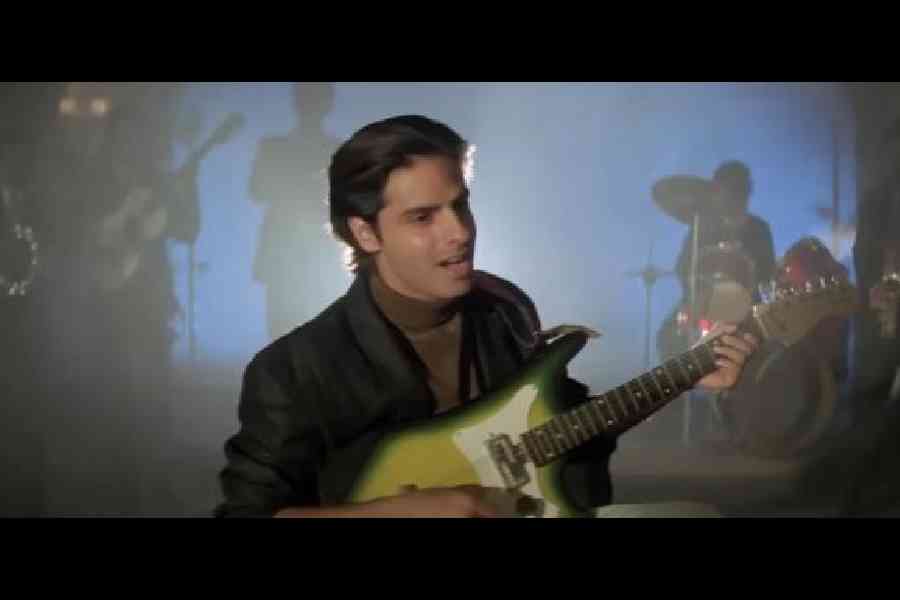A brand new sound heralded a brand new decade. The film was Mahesh Bhatt’s Aashiqui, released in July 1990. It starred newcomers who could never replicate the box-office success of their debut. But its music by Nadeem-Shravan, an unstoppable juggernaut, rewrote Bollywood economics by making audio sales a major part of a film’s revenue.
Aashiqui’s music album sold over 20 million units, making producer Gulshan Kumar and his company Super Cassettes Industries (T-Series) laugh all the way to the bank. And everyone took note of Kedarnath Bhattacharya, a singer in his early 30s from north Calcutta who had been making the rounds of Bollywood music directors since the early Eighties.
The timing was right. Kishore Kumar, the monarch of male playback, had joined the choir invisible in 1987. Udit Narayan, one of Bollywood’s most original voices, had shot to fame with Papa kehte hain in Qayamat Se Qayamat Tak (1988), but everyone missed Kishore.
Kedarnath, aka Kumar Sanu, fitted the bill. He sounded a lot like Kishore. True, he had a nasal twang, but he also had the feels. Nadeem Akhtar Saifi and Shravan Rathod, then small-time composers, took a chance on a fellow struggler with Aashiqui. Their gamble paid off. Songs like Saanson ki zaroorat hai jaise, Main duniya bhula doonga, Nazar ke saamne, Tu meri zindagi hai, Dil ka alam... were on everyone’s lips.
But the piece de resistance was perhaps Ab tere bin jee lenge hum. The heartbreak song by lyricist Sameer wasn’t mopey. It had defiance, tricky to pull off by even seasoned singers.
Ab tere bin jee lenge hum
Zahar zindagi ka pee lenge hum
Kya hua jo ek dil toot gaya...
Sanu aced its rendition, the hurt and the anger palpable in the song. And, with it, he became more than just a Kishore clone.
He went on to become the cultural zeitgeist of the Nineties. Though Udit Narayan, Abhijeet and Sonu Nigam had their own — and massive — fanbase, Sanu was the OG hit machine. In the rapidly changing 1990s marked by liberalisation, MNC brands and the buy-buy craze, cable TV, the Khans, Bollywood’s burgeoning NRI market, the Underworld’s deadly flirtations with Bollywood and the birth of the multiplex, Sanu’s voice was the constant, singing of love and hope and heartbreak.
Of course, for every soulful Ae kash ke hum, Ek ladki ko dekha and Tujhe dekha toh ye jana sanam, there was the occasional Gutur gutur.
A lot has happened since Aashiqui. Nadeem, who was accused of Gulshan Kumar’s murder and exonerated after a long legal battle, lives in Dubai and no longer makes music. Covid claimed Shravan in 2021. Sanu and Sameer no longer enjoy top billing like they used to. People don’t buy cassettes and CDs to listen to music; they turn to streaming platforms like YouTube and Spotify.
Immune to change, Ab tere bin jee lenge hum still wears its wounds on its sleeve. Broken and beautiful.










